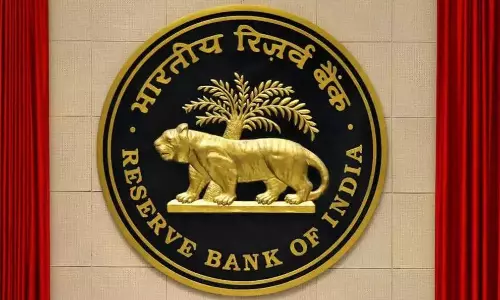
How to do Ramadan fasting right and emerge as a healthier person
text_fieldsThe Holy month of Ramadan is spent fasting from dawn to dusk for a reason. The hours with no food are seen as an opportunity to practice self-control, reflect on one's life, and help the body heal. However, the sudden change in your routine may end up being hard on the body. The key to observing Ramadan fasting right is to listen to your body and be kind to it. What you eat during suhoor (the food eaten before dawn and the call to prayer at that time) and iftar will determine whether you come out of the Ramadan month as a healthier person or not. Following some simple guidelines will ensure that you emerge as a healthier version of yourself at the end of the month.
Water is your best friend
It is a known fact that lack of water will lead body to feel increased fatigue and severe lethargy. Dehydration would further impact on head, besides provoking constipation, ultimately making the body feel uncomfortable. Doctors instruct that you must drink at least 10 glasses during non-fasting hours. Try to include water-rich fruits and vegetables like watermelon and cucumber for suhoor.
Try to avoid fizzy drinks, sugary juices and caffeine when opening the fasting. Sugary drinks can cause slow digestion, in turn adding more weight. It is also better to avoid salty and spicy foods that increase thirst during iftar and suhoor.
Balance the food groups for suhoor
Suhoor is the immediate energy source your body has until the sunset. But it doesn't mean you need to stuff your stomach with all you can find. The purpose of the morning meal is to provide your body energy and not to make you feel sluggish. One of the most important rules of suhoor is to choose a food item from all food groups. A wholesome, balanced meal will have vegetables, nuts, whole grains, dairy, and fruits. This diverse plate will make sure your body does not suffer from the lack of anything. If you eat oily or heavy foods in the morning, the body will keep struggling all day long to digest them and end up getting tired. You can also munch on some nuts as they will supply energy all day long.
Fibre-rich foods are a blessing
If you are suffering from constipation after the fast began, it is not a reason to worry. The digestive tract is seeing some sudden changes in its routine and needs your help to ease into it. Hydration and fibre-rich foods can help you cope with this problem. Include dates and other fibre-rich items in iftar as they will keep the stool bulky and easy to pass. Start your day with ash gourd juice and include chia seeds in your breakfast. These foods will also cleanse the intestines of any waste is stuck on the walls. Your Ramadan fast will also act as a colon detox session that will improve your overall health.
Stay away from junk food
When you are abstaining from something, it is natural for the brain to focus on it and crave for it. It is normal for your tastebuds to think of foods high in fat, sugar, and salt. Your body is not aware of your plan to eat a healthy meal at the end of the day. It only knows that the routine has been changed. You, on the other hand, are aware that a wholesome, nutritious meal is waiting for you at dawn and dusk. Do not cave and indulge in fried and processed foods because they cause you to binge eat. These high-calorie, low-nutrition foods can also cause indigestion, acidity, and fatigue.
Keep drinking water at room temperature
You may want to drink cold water at the end of a long, hot day. But room temperature water is best for breaking the fast because it helps jump-start digestion. You can choose lukewarm water also to help process heavier foods. Cold water must be avoided at all costs because fasting brings down body temperature and a cold drink will bring it down further. It is also best to avoid caffeinated drinks like coffee, tea, bottled drinks, and green tea during fasting days because they make you urinate more.
Experiment with salads
Ramadan is the perfect time to break out your salad bowls. You can experiment with various healthy ingredients that will keep you full and taste delicious. Some foods to play with are almonds, walnuts, olives, seeds, jaggery, dates, tomatoes, cucumbers, and avocados. You can also try salad recipes with pulses and lentils. Dairy products are a great way to ensure your protein intake is optimum. Butter, cheese, and cream are great additions to salads. They also make you feel like you are eating rich and heavy dishes but they do not trouble the stomach.
What does a balanced plate look like
Nutritionists suggest that you stock up on fresh vegetables and fruits. But that is not all. Half of your plate is recommended to be covered in salad greens. A chicken dish and a potato dish are perfect to supply energy and nourish your body. Heavy desserts like chocolate and pastry are not your best options. Lighter sweet dishes like ice cream or sweet curd will make you feel better. Some lightly buttered broccoli and red rice in the morning go a long way. Serve both your meals with plain yoghurt that will take care of the gut bacteria.
You can begin iftar with easily digestible foods like soup or fresh fruit juice before moving on to the main course after 10-15 minutes. Some of the popular snacks for iftar are cheese-stuffed dates, haleem ke kebab, chicken shawarma, mutton kebabs, and keema samosa. Grilled, boiled, or steamed meat is often recommended for the main course.
























